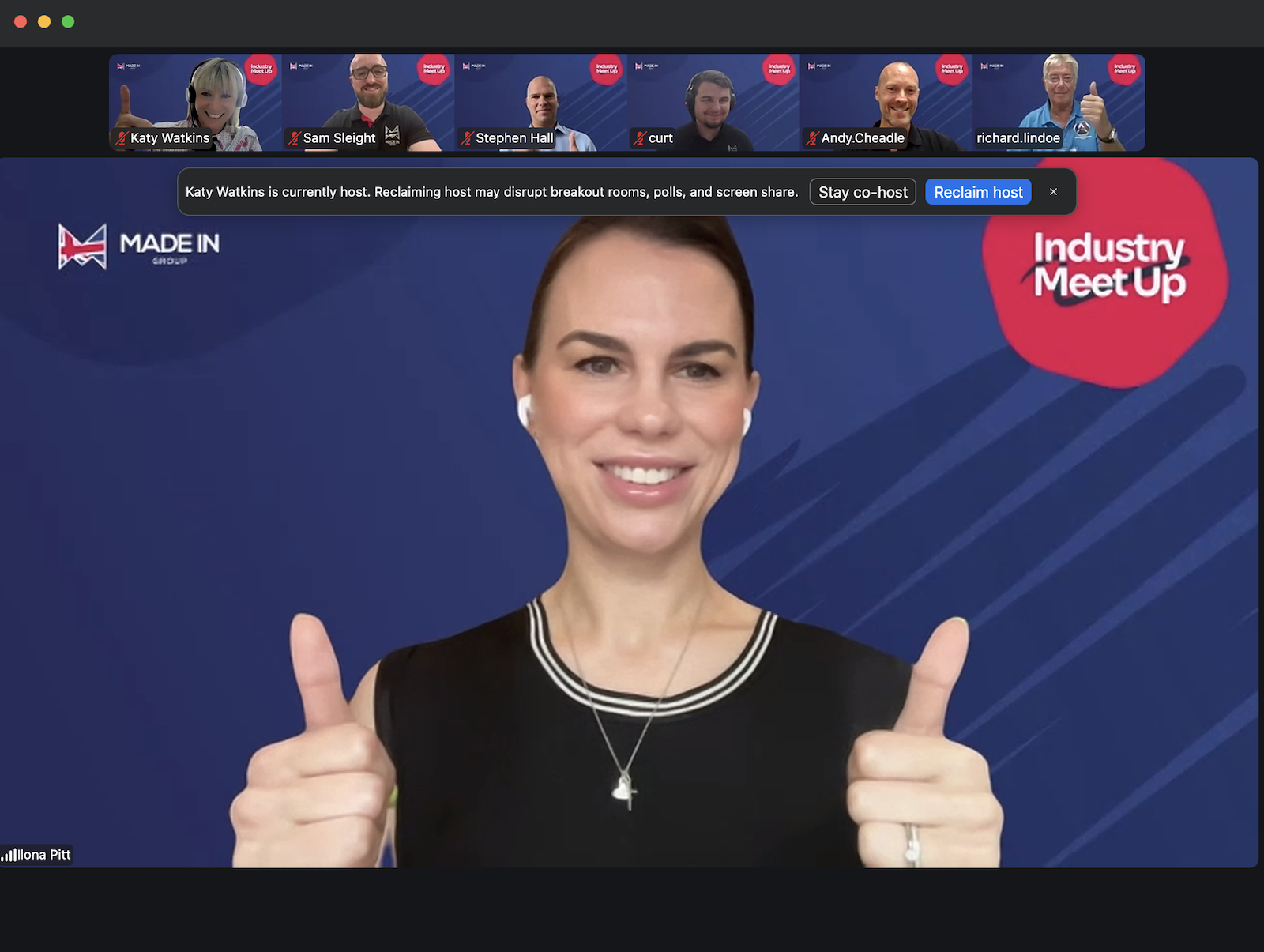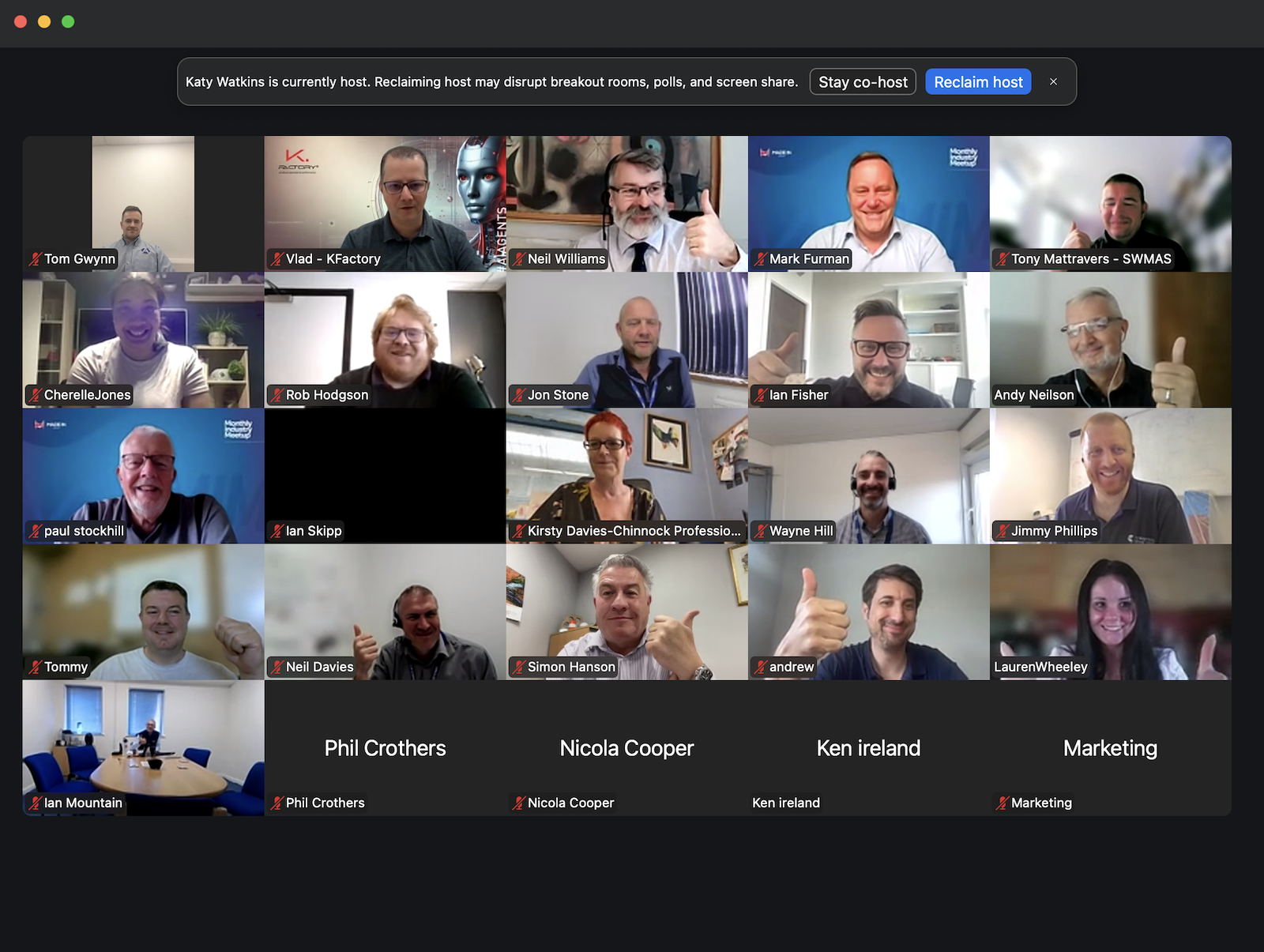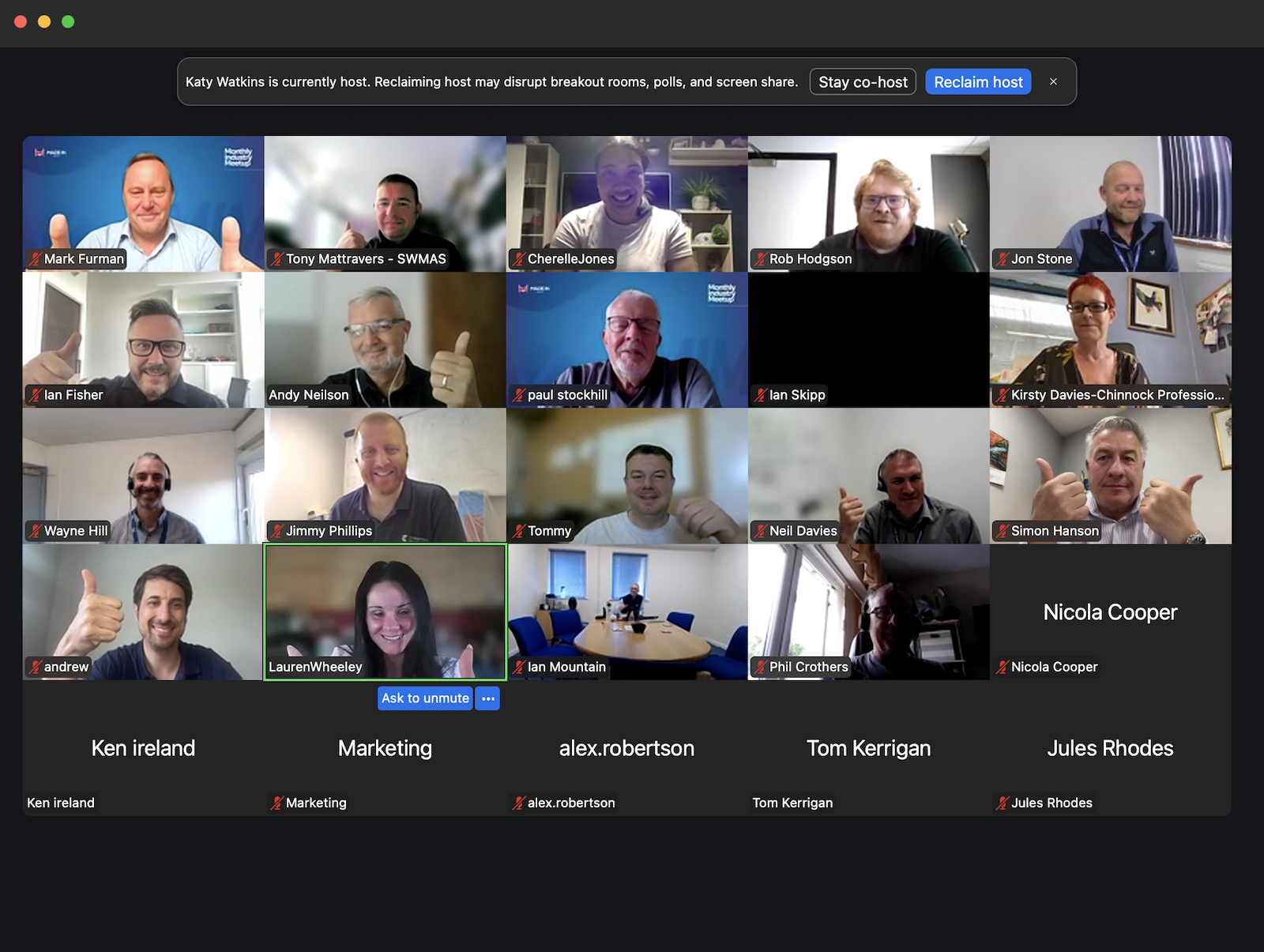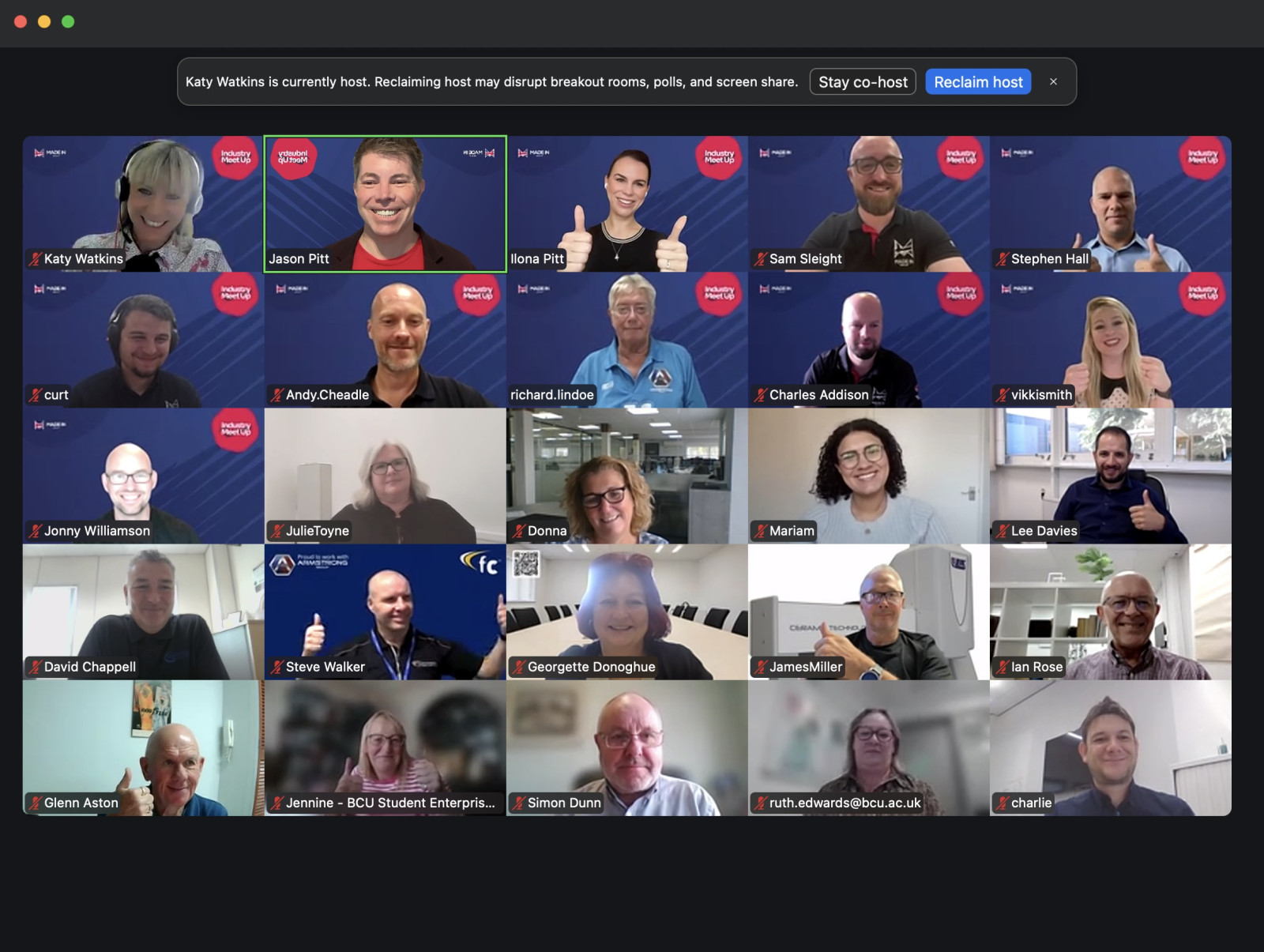How Smart Tech, Culture & Sustainability Took Centre Stage at Made in Group’s National Online Meet-Up
From the boardroom to the shop floor, the manufacturing landscape is evolving faster than ever. On July 16th, the Made in Group brought together members from across Made in the Midlands, Made in Yorkshire, and Made in the South West for a dynamic and thought-provoking national online meet-up. Featuring three best-practice talks and themed digital roundtables, the 75-minute virtual event highlighted some of the biggest challenges and opportunities currently shaping UK industry — from culture and people strategy to predictive maintenance and critical metals recovery.

Held as part of the Group’s ongoing mission to connect and empower manufacturers, the online meet-ups serve as a powerful complement to regional factory tours, in-person networking, and the annual Westminster reception and awards. And with fresh insights, real-world solutions, and shared experiences from across the sector, July’s session was one of the most impactful to date.
Here are some of the key takeaways from the morning — and why they matter to the future of British manufacturing.

£180 Billion in the Balance: Why Smart Maintenance Is No Longer Optional
Kicking off the session was Andrew Cheadle, Projects Manager at Heinrich Georg UK, who pulled no punches when outlining the high stakes of factory downtime. With unplanned stoppages costing UK manufacturers an estimated £180 billion annually, the need for proactive, data-led solutions has never been clearer.
Andrew walked members through the practical steps manufacturers can take today to move from reactive firefighting to predictive planning. From real-time condition monitoring and smart alert systems to remote diagnostics and energy-saving automation, his message was clear: the tools are here — it’s time to use them.
But technology alone isn’t the silver bullet. Andrew also highlighted the critical role of people and skills in any successful smart factory strategy. “Training staff to understand, manage, and optimise smart systems is just as vital as installing the systems themselves,” he said.
He also offered a word of caution for businesses looking to overhaul operations all at once. “Big bang automation projects often come with high costs and high risks,” Andrew noted. “Phased improvements, especially to legacy control systems and safety features, are often more budget-friendly and effective.”
Culture Eats Strategy for Breakfast
Next up was Richard Lindoe, Managing Director at Armstrong Group, with a powerful talk on the human side of transformation. Drawing on decades of experience leading manufacturing businesses across the UK and Europe, Richard shared lessons from the front line on how investing in people can deliver lasting competitive advantage.
“Anyone can buy a machine,” he began. “But if you don’t have the right people — or the right culture — you won’t get the outcomes you need.”
Richard’s approach is grounded in clarity, trust, and visibility. Whether it’s mapping team skills, aligning goals, or simply recognising contributions that often go unseen, creating a sense of ownership and pride is what turns operations around.
From simple tools like shift planning boards to more structured recognition schemes, his leadership style is all about making culture tangible and actionable. He also emphasised the importance of nurturing external partnerships — especially with suppliers — treating them as long-term collaborators, not just service providers.
As one standout example, he described how a team member had taken the initiative to launder and reuse PPE gloves, saving costs and cutting waste — without ever being asked. “People notice more than we think,” Richard said. “When we invest in them, they invest in us.”
Rethinking Waste: From Scrap to Strategic Resource
Bringing the spotlight to sustainability was Stephen Hall, Managing Director of Advanced Alloy Services. Stephen’s presentation focused on one of the most pressing and overlooked areas of modern manufacturing: critical metal recovery.
As global demand for superalloys and rare metals surges, and geopolitical tensions strain supply chains, manufacturers are being urged to think differently about how and where they source materials. Stephen’s company is pioneering solutions to recover high-performance metals from scrap — turning what was once waste into a strategic resource.
The stakes are high. Many critical metals used in aerospace, energy and defence are currently lost through low-quality recycling routes or sent offshore. “We’re seeing high-value alloys with cobalt, nickel and rhenium being thrown into stainless melts,” Stephen noted. “Once they’re gone, they’re gone.”
To address the issue, AAS has built an in-house R&D lab and partnered with Coventry University on innovative bioleaching processes. Using microorganisms to extract critical metals from secondary materials, the approach is both environmentally sustainable and commercially promising.
Stephen’s call to action was bold but clear: “There’s a massive gap in the UK’s midstream processing capability. But there’s also massive opportunity, if we invest now.”
A Community That Shapes Industry, Not Just Reacts to It
The event closed with a reminder that manufacturing is not just a sector — it’s a community. With digital meet-ups like these, alongside physical factory tours and headline events like the House of Lords Reception and Made in Group Awards, the organisation continues to provide a platform where ideas spark action and relationships lead to real results.

What’s Next?
-
Exactaform Cutting Tools Factory Tour – September 11 (Coventry)
-
Made in Yorkshire Expo – October 16 (Huddersfield)
-
House of Lords Reception & Great 100 Awards – December 4
Don’t just witness the change. Be part of it.

